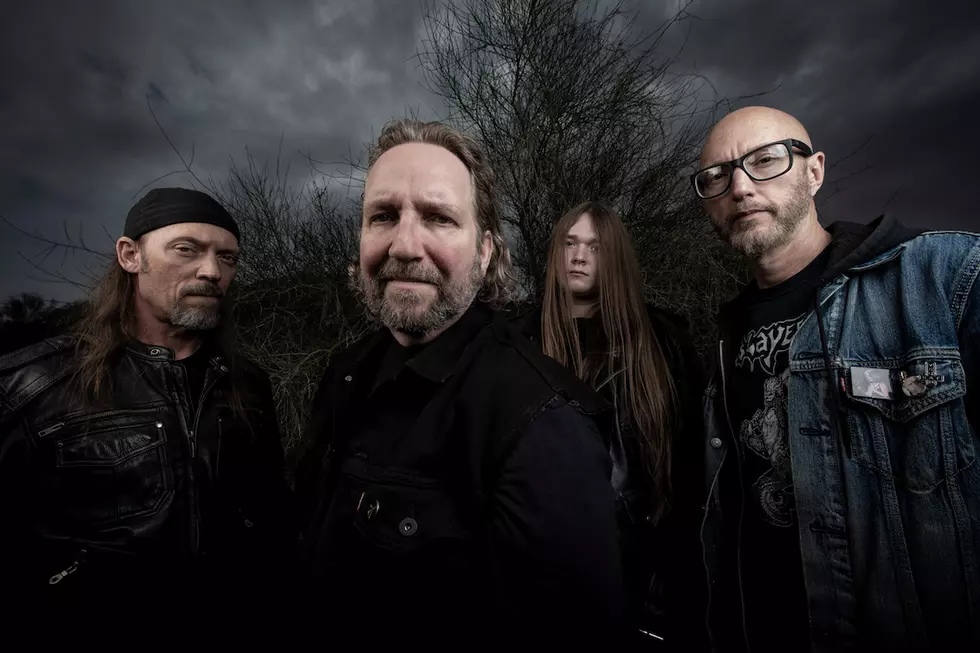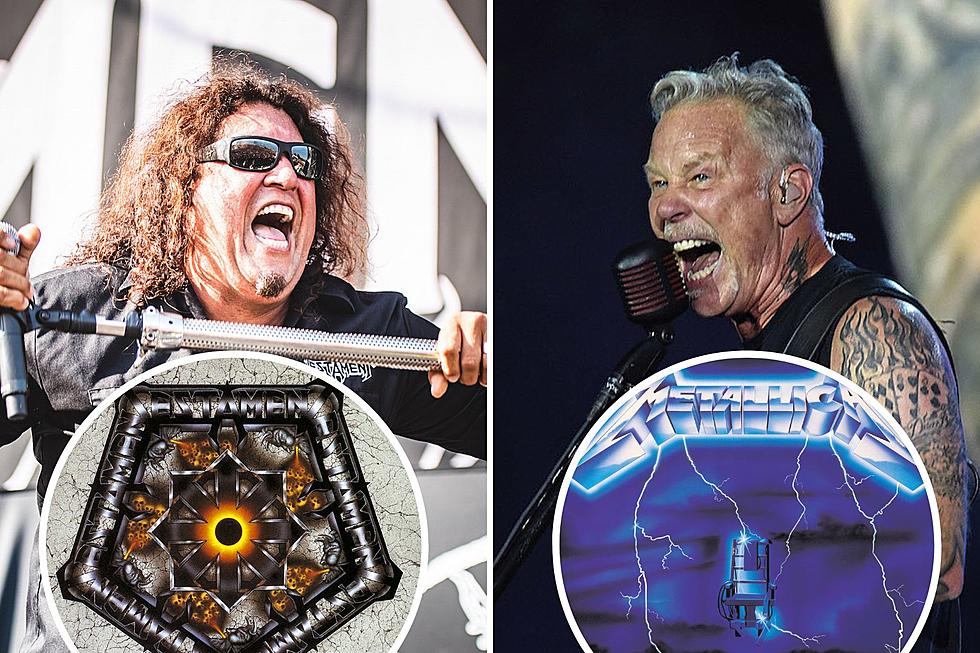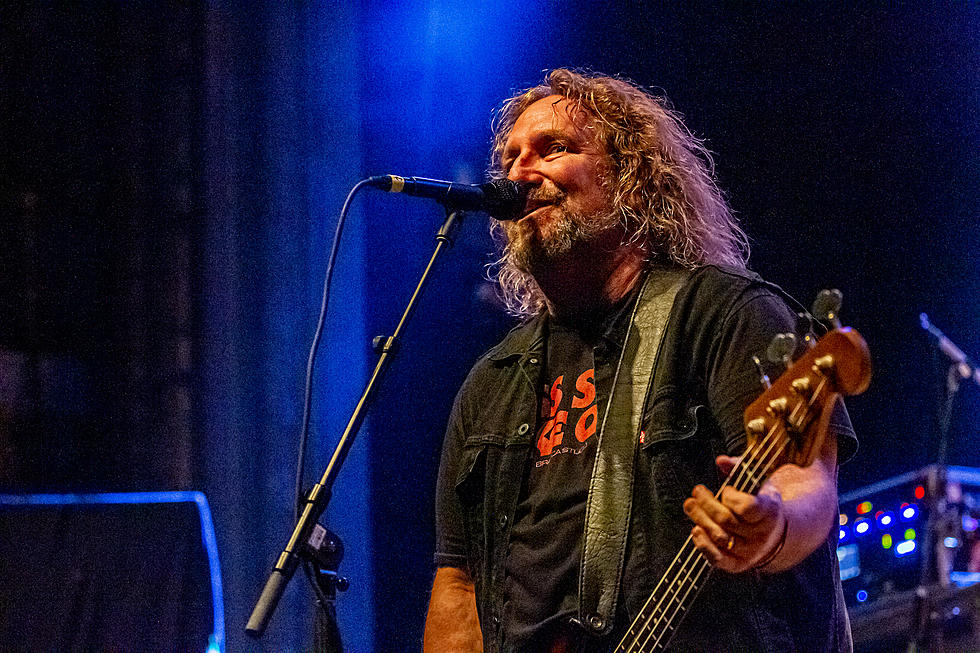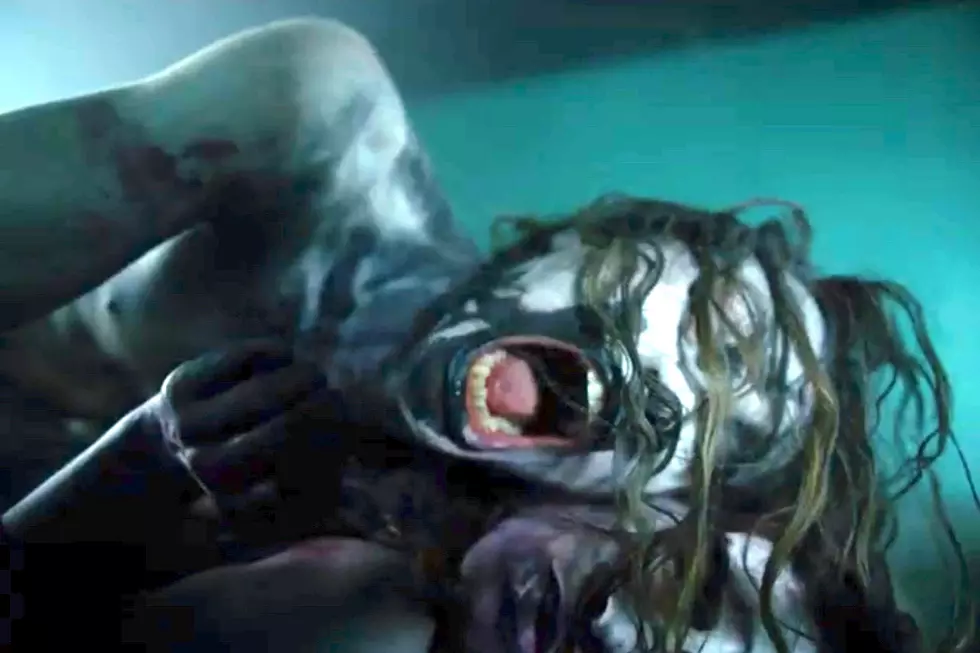
Sacred Reich’s Phil Rind: Metal + Buddhism Have Similarities
Thrashers Sacred Reich reunited in 2006 after splitting up in 2000, but until this year, no new material had surfaced from the Arizona-based group. Now, the band has dished out Awakening, their first album since 1996 and singer Phil Rind, as a guest on Full Metal Jackie's weekend radio program, explained how the record came into existence.
The question of identity loomed over the group when they entertained the idea of a follow-up to 1996's Heal, and after being told to just let loose, the band dropped their guard and the new music came pouring in. Rind, who strives to write aggressive music with a positive attitude, also explained how metal and Buddhism, of which he is a known practitioner, have some similarities.
Check out the full chat below.
Awakening is the first record from Sacred Reich in over 20 years. What's the biggest challenge about reestablishing continuity with what you did then?
Ah, I don’t know, I think the best thing is to not think about it too much and just play what's coming out. I had this whole discussion with a friend of mine because even just thinking about making a record was like, "What do we sound like? Who knows?"
It's been so long and we're so far removed. I mean, being 16/17 when we wrote our first record in 1987. What do we sound like? His advice was, "You sound like what you sound like, just go write your stuff and it sounds like Sacred Reich." He was right, and it was really liberating. All we can do is the best we can do right now and we hope that people like it and we're really excited about the results.
What reignited your creativity?
We're not sure. When we stopped playing around 1997, there were no songs coming, so it just felt like the right time to wind down the band. Then we started playing together again in 2007 and everyone always asked, "Are you gonna make a new record?" The answer was always no because we didn't have any songs. I don't know what changed, but something changed.
Then the flood gates opened and it was like, "Wow, we have a record." It's best not to think about it too much and question it and just go with it. We just feel really fortunate to be able to make a record after all these years.
When you reflect on this latest record on both a musical and personal level, what stands out most about the process of making it?
I think the process was just so positive and fun and open and natural. With all of us together working on the record, we just had a really great time making it. We felt very fortunate to still have the opportunity and the first night while we were recording Wiley [Arnett, guitar] and I were looking at each other and just kind of pinching ourselves like, "Are we really doing this?"
That was really the feeling we had the whole time we made it and we really just wanted to create it in the old school way and record it very naturally with natural sounds without too much technology in the way. The group of people that we had working on it along with Arthur Risk the producer and John Aquilino the engineer — we just had a great team and really positive energy while we made it.
Sacred Reich have always been a socially conscious band. Given the current political and societal climate of the world, what lyrical statement did you feel responsible to make with Awakening?
Well, I think obviously there's a lot of things going on across the planet. You know, this kind of rise of this right wing populism and... I'm not exactly sure. It's probably just created by a lot of the refugee crisis, which is created by all these countries invading other countries, creating war, displacing all these people, and then you could have enemies that people point fingers at.
For us it was just really important to go past that and just to say focus on the good stuff, to be real positive, really encouraging. Overall, the theme of this record is just very positive and encouraging and trying to look on the positive side of things.
Back when you started, Sacred Reich was considered to be a part of the second wave of thrash. What still resonates with you about those bands and this music?
More than anything it's just a feeling. We were really fortunate to be at the right place at the right time when there was such an incredible scene and so many great bands coming up. We really just felt part of that.
Being from Arizona, we felt a little apart from it, but I think it was good to do our own thing and it helped us develop our own sound within it. Being part of that just gives you that sense that you can just do your own thing.
I think the whole thrash ethos is to always just go out and do it — you're the same as everybody else. The only difference between us onstage than people in the crowd is that we're holding instruments. think that's really the thing and I think it's still alive and well.
Phil, Buddhism has been a fundamental part of your life for a long time. In what ways does metal overlap with Buddhism in terms of having a positive effect on a person?
Metal is malleable; it becomes whatever you want it to be. That's a beautiful thing. There are so many different kinds of music, even just within the metal genre. So we can play heavy, hard-hitting music and still have a very positive message with it. The thing that's wonderful about metal as a community and Buddhism is called a Tsonga — a group of people. So in metal we have a community and in Buddhism we have the Tsonga and we're all in it together. So I think that that's the part that really resonated.
Thanks to Phil Rind for the interview. Grab your copy of Sacred Reich's new album, Awakening, here. Follow the band on Facebook, Twitter and Instagram and find out where you can hear Full Metal Jackie’s radio show here.
Best Thrash Album of Each Year Since 1983
More From Noisecreep










